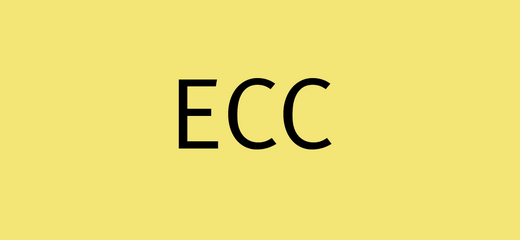
Error-Correcting Codes: Theory and Practice
Error correcting codes are a fundamental tool for protecting data from noise. They appear naturally throughout computer science, electrical engineering, math and physics. For that reason, they have a rich intellectual history in all of these areas. While error correcting codes have been studied since the 1950’s, the last several years have seen a flurry of theoretical progress across all of these areas. For example, in theoretical computer science, we have seen new constructions of list-decodable and locally decodable/testable codes; in electrical engineering and information theory, we have seen the emergence of polar codes, and of new results on the performance of classical codes on stochastic channels; in math, we have seen new combinatorial results and connections with algebraic geometry; and in physics we have seen the recent development of good quantum LDPC codes.
This flurry of theoretical progress has been matched with (and motivated by) a flurry of emerging applications. New technologies give rise to new theoretical problems, and solutions to those problems feed back into practice. Examples include applications in DNA storage; quantum computing; coding for distributed systems and distributed computing; and coding for emerging memory technologies. Error correcting codes have also been finding new theoretical applications, for example in complexity theory, pseudorandomness, and cryptography.
This program brings together researchers from different communities of theoretical research on error correcting codes, including TCS, EE/IT, Math and Physics, as well as researchers working on potential application areas. The aim is to further catalyze progress in this area and to lay out new directions for the field.
Click here to subscribe to our news and events to learn more about this and other events.
Organizers:
Sivakanth Gopi (Microsoft Research), Venkat Guruswami (UC Berkeley), Henry Pfister (Duke University), Mary Wooters (Stanford University), Gilles Zémor (Institut de Mathématiques de Bordeaux)
Long-Term Participants (tentative, including organizers):
Alexander Barg (University of Maryland), Rob Calderbank (Duke University), Dean Doron (Ben-Gurion University), Parikshit Gopalan (Apple), Sivakanth Gopi (Microsoft Research), Venkat Guruswami (UC Berkeley), Anthony Leverrier (INRIA), Arya Mazumdar (UCSD), Marco Mondelli (Institute of Science and Technology Austria), Krishna Narayanan (Texas A&M University), Henry Pfister (Duke University), Yury Polyanskiy (Massachusetts Institute of Technology), Noga Ron-Zewi (University of Haifa), Alex Samoradnitsky (The Hebrew University of Jerusalem), Madhu Sudan Sudan (Harvard University), Amnon Ta-Shma (Tel Aviv University), Antonia Wachter-Zeh (Technical University of Munich), Mary Wooters (Stanford University), Eitan Yaakobi (Technion-Israel Institute of Technology), Gilles Zémor (Institut de Mathématiques de Bordeaux)


